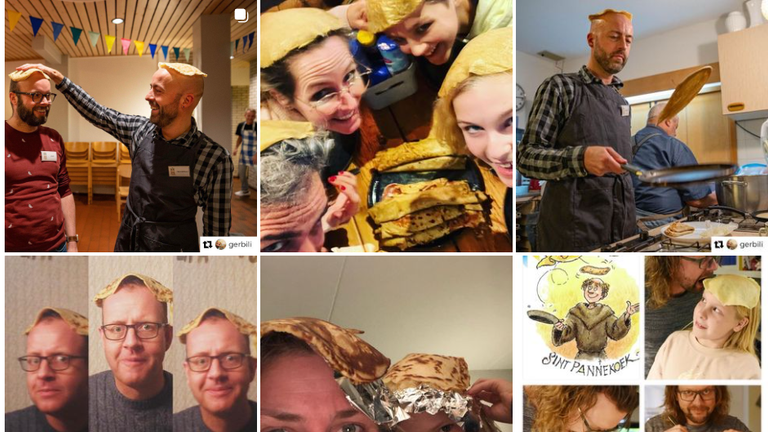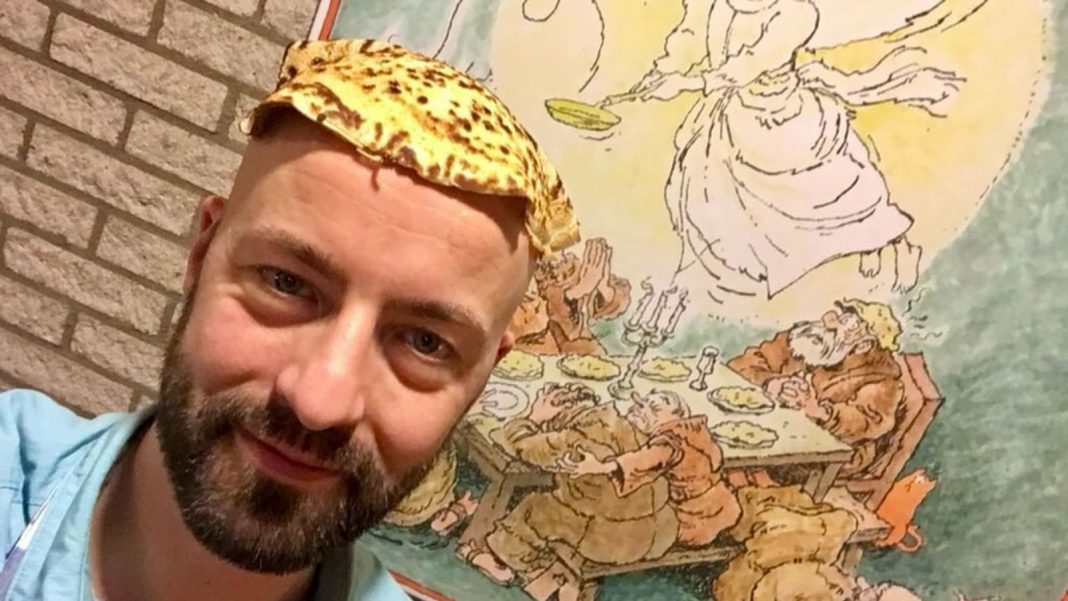A legend of monks with cold heads, an angel holding a golden frying pan and a fictional Sint Pannekoek. Yes, today is Dutch pancake day!
While much of the world cooks their favourite sweet (and savoury, I guess) pancakes on Shrove Tuesday in the early months of the year, people in Rotterdam have a different tradition.
Every year, on 29 November, a number of Netherlands residents put pancakes on their heads in a quirky celebration that has gained traction.
Once the edible hat is in place, followers of the tradition say: “We wish you a happy and blessed Saint Pancake (Sint Pannekoek)!”
So, how did we get there?
The celebration was invented in 1986 in a cartoon by Dutch cartoonist Jan Kruis, in which a father comes home in the evening to find his family wearing pancakes on their heads.
People get into the spirit of Dutch pancake day. Pic: @gerbili / Gerbert Paanstra / Sint Pannekoek
Three decades later, Mr Kruis expanded the idea with The Gospel of Saint Pannekoek.
In this piece, he tells the tale of 12th-century monks in a monastery celebrating a young monk’s birthday and eating pancakes – but there is only enough for one each.
When the old abbott becomes cold, the young monk places his pancake upon the elder’s head.
At this, an angel descends from heaven holding a golden frying pan and flips a pancake onto the young monk’s head.
“The Lord has done us a miracle! We have a saint in our midst!” the others cry, and put their own pancakes on their heads.

Snaps of pancakes on heads are posted to Instagram. Pic: Sint Pannekoek
Read more:
Police use pancakes in hunt for suspects
To learn more about Sint Pannekoek, Sky News spoke to Dr Henriette Louwerse, a senior lecturer in Dutch at the University of Sheffield.
“It is totally made up of course, but apparently it has gained some traction,” she told us.
“I like the implicit criticism of ‘the holiness of traditions’. The tendency to suggest that if traditions change, a profound identity is somehow infringed.”







